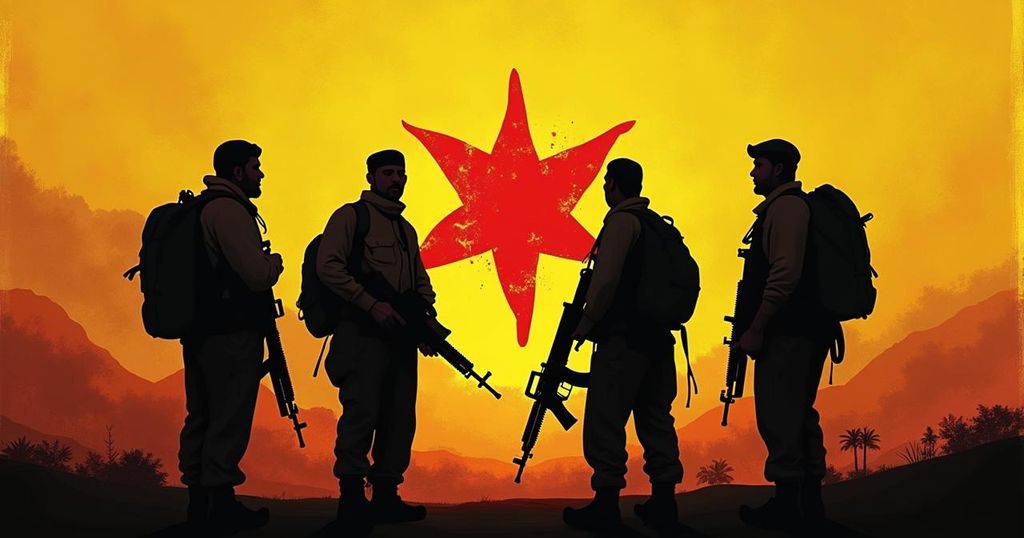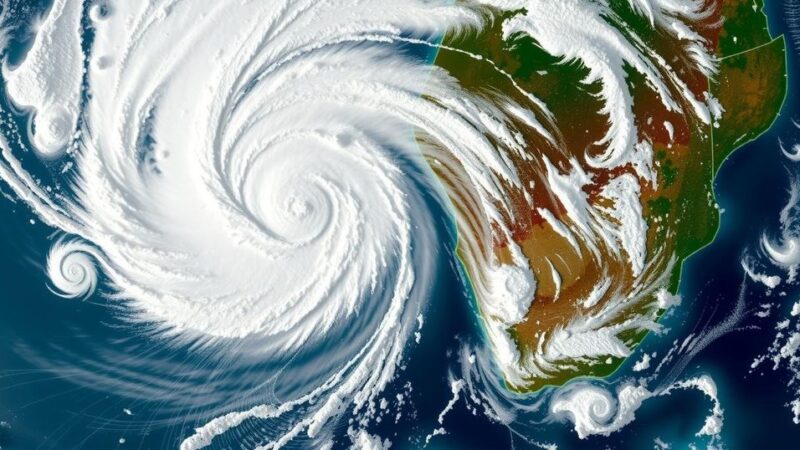The killing of Hezbollah leader Hassan Nasrallah and IRGC Brigadier General Abbas Nilforushan in Beirut has heightened tensions within Iran. The reformist government under President Masoud Pezeshkian faces intensified pressure from hardliners advocating for military retaliation against Israel, which they blame for these deaths. Despite calls for action, the government emphasizes the need to avoid direct conflict with Israel, fearing unwanted escalation. Internal cohesion is threatened by accusations of hesitation and potential disobedience to the Supreme Leader’s orders, creating a complex political atmosphere as Iran reassesses its strategy in the region.
The recent killing of Hezbollah’s leader, Hassan Nasrallah, alongside Brigadier General Abbas Nilforushan of the Islamic Revolutionary Guard Corps (IRGC) in Beirut has significantly impacted Iran’s political landscape and its approach towards Israel. While the Iranian reformist government, led by President Masoud Pezeshkian, has made it clear that it will not send troops to support Hezbollah, it faces growing domestic pressure from hardliners who accuse the administration of exhibiting weakness in response to Israeli actions. These hardliners are leveraging the situation to oppose any further discussions with Western nations regarding oversight of Iran’s nuclear program. The controversy intensified following claims by influential conservative figures that the Iranian leadership’s restraint provided encouragement for Israel’s aggressive actions, leading to Nasrallah’s death. Some even suggest that there was a disobedience of an order from Supreme Leader Ali Khamenei to retaliate against Israel for the earlier killing of Hamas leader Ismail Haniyeh in Tehran. They argue that the Iranian government’s inaction has left both the Iranian populace and the wider resistance alliance vulnerable to Israeli aggression. Despite these pressures, government officials maintain that a direct confrontation between Israel and Iran must be avoided to prevent escalation into a broader conflict involving the United States. For instance, Foreign Ministry spokesperson Nasser Kanaani has expressed that while Israel’s aggressions would not go unanswered, there is no current need for Iranian forces to be deployed, as Lebanon and Palestine possess the capabilities to address the situation themselves. This tension is accentuated by comments from key international figures, including Israeli Prime Minister Benjamin Netanyahu, who believes that Nasrallah’s death alters the regional power dynamics and has called for regime change in Tehran. Former Trump advisor Jared Kushner echoed these sentiments, asserting that the destruction of Hezbollah’s leadership leaves Iran vulnerable, emphasizing that it is now opportune for Israel to dismantle Iran’s military capabilities aimed at Israel. The Iranian regime faces the challenge of re-establishing its deterrent presence without resorting to direct military interventions, which could further damage their credibility and invite increased retaliation from Israel and its allies. Analysts suggest that rebuilding Hezbollah or employing low-level state-sponsored terrorism may be Iran’s least risky avenues at this juncture, given the potential ramifications of escalating into full-blown conflict.
The article addresses the current geopolitical tension following the assassination of key Hezbollah and Iranian military leaders, which has drawn Iran into a complex domestic and international conflict. The Iranian government is balancing between internal calls for retaliation against Israel and the strategic imperative to avoid open war. This is set against a backdrop of renewed scrutiny over Iran’s nuclear intentions and its role in regional conflicts, particularly concerning its support for proxy groups like Hezbollah. The political discourse within Iran reflects a deepening divide between reformists seeking diplomatic avenues and hardliners pushing for militaristic responses.
In conclusion, Iran is at a critical crossroads, navigating the pressures from hardliners demanding a forceful response to escalating conflicts with Israel, while reformist leaders advocate for a measured approach. The assassination of prominent figures within Hezbollah and the IRGC intensifies calls for action among Iranian conservatives, yet carries the risk of wider conflict, complicating Iran’s strategic options. As Iran grapples with these dynamics, it is likely to explore alternative strategies to restore its deterrent posture without provoking a military escalation. Ultimately, Iran’s next steps will define the future of its regional influence and its capacity to maintain a semblance of stability amid growing external pressures and internal dissent.
Original Source: www.theguardian.com







